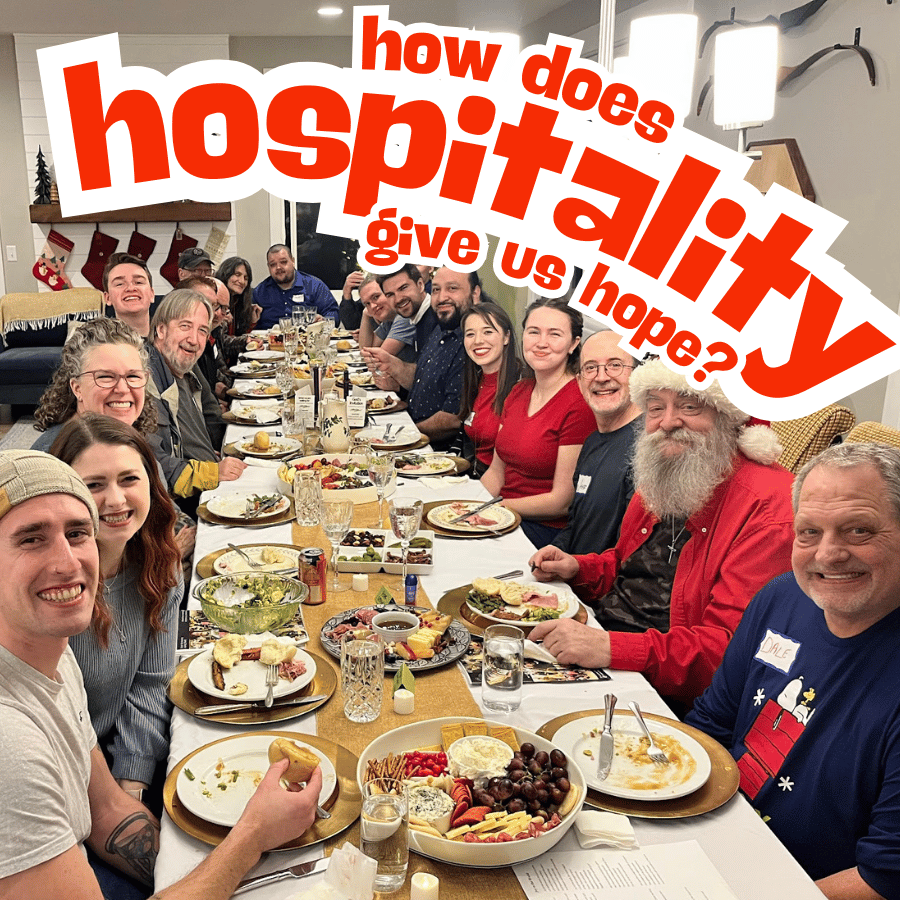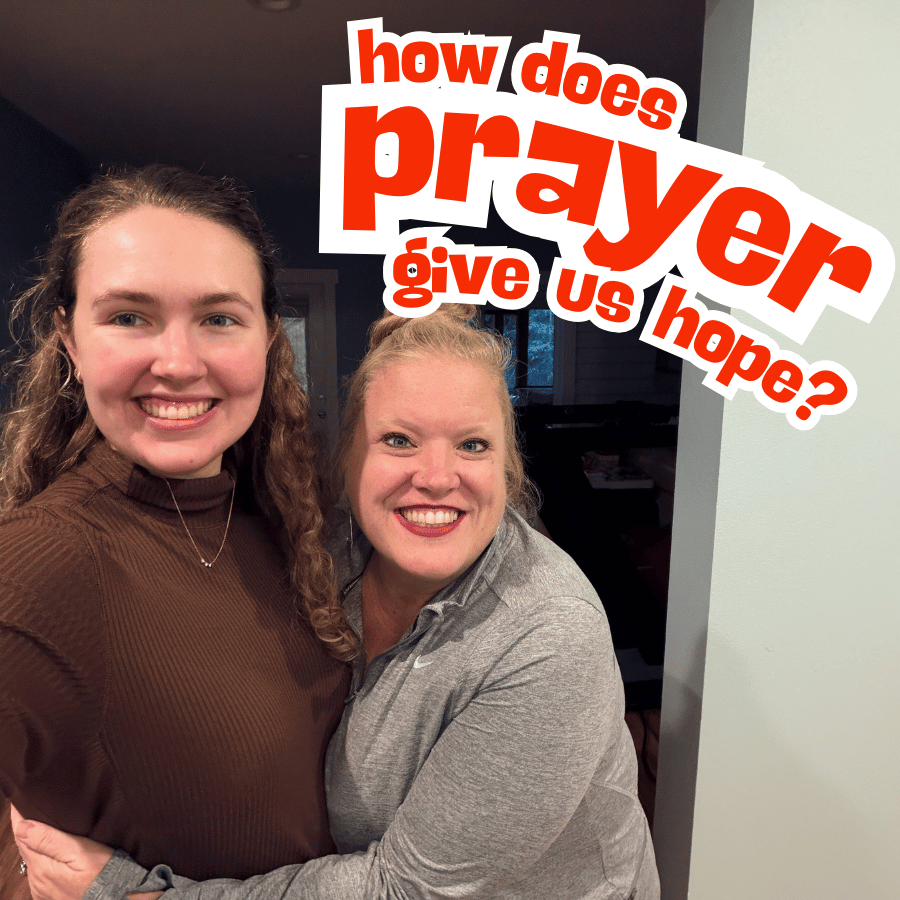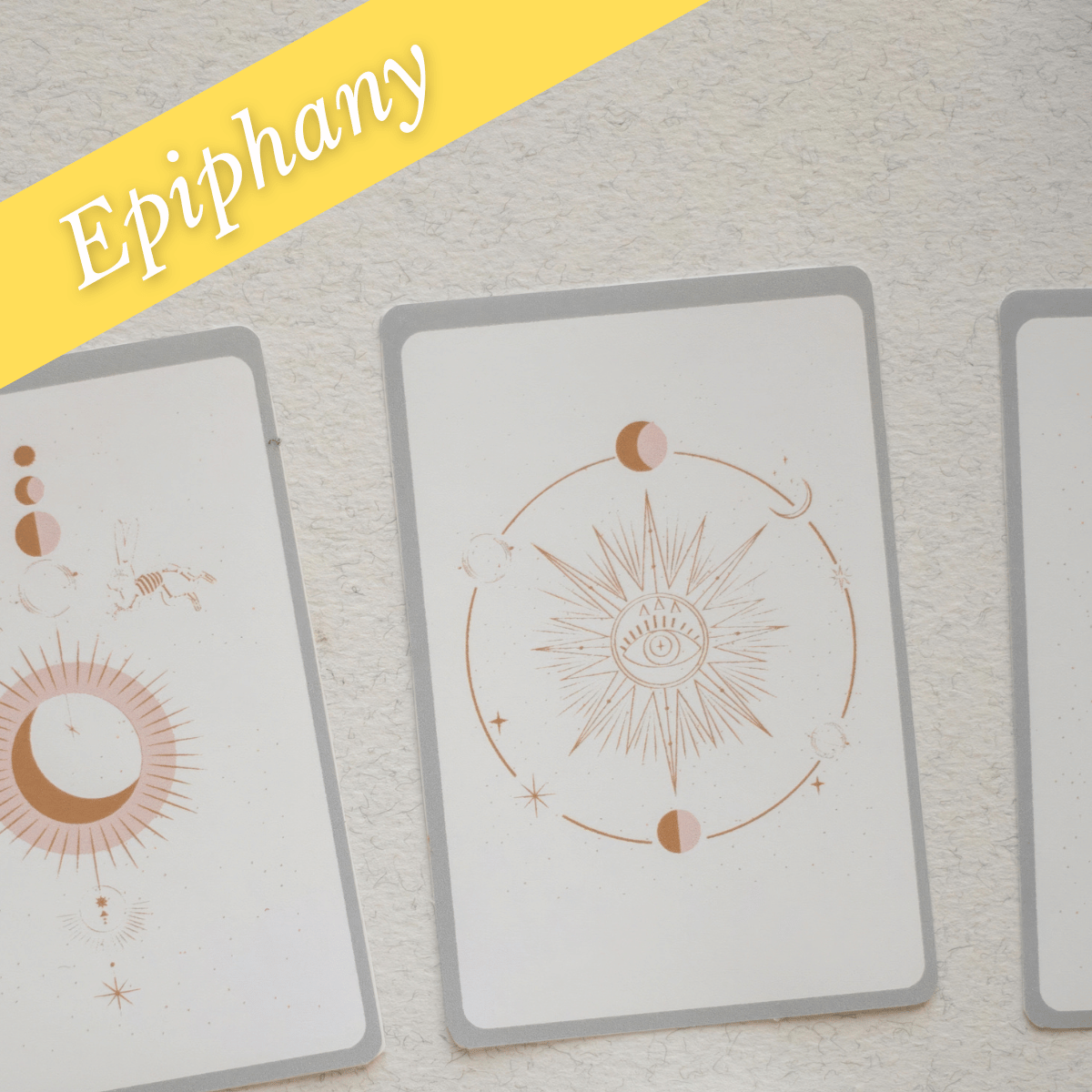Big Idea: Togetherness on the Faithful Path
Written by Emma McCoy
5 minute read
Have you ever found yourself wondering what Spring Church’s next Big Idea is? Well if you have, you’re in luck, because that’s what this blog is all about. So don’t hold your breath; here it is, in all its glory:
We take the next step together, even when the faithful path isn’t easy
For the most part, I’m a good little academic. I know how to read a scholarly article, I can use big words like “duality” and “socioeconomic,” and I know when to define terms. So bear with me for just a few moments while I orient us in this Big Idea, and then we’ll get onto the part where I illustrate it using a fun example.
“The faithful path” is another way of saying “following Jesus in the direction he’s walking.” If our heart is a compass and He’s magnetic north, then the faithful path is the direction that needle takes as it points north. The faithful path is trying our very best to keep our heart (compass) oriented toward Jesus (magnetic north). Fortunately, our hearts are created to be oriented toward Jesus, and we can cultivate that orientation through spiritual practices. We want to love what we’ve been created to love, and Jesus wants to love us too and works continually to that end.
At the same time, this faithful path often isn’t easy. In fact, in his letter to Phillippi, Paul promises that this life with Jesus isn’t a cakewalk and we’re going to endure suffering (Phillippians 1:29). So of course there are going to be times where the faithful path isn’t easy, but that is why we take the next step together. Together, meaning not alone. Although most readers understand the dictionary definition of “together,” I know that I can always use a reminder that it means not all by yourself, you big dunderhead. The urge to handle my problems by myself and not bother everyone is huge. As I’m growing into myself, I’m learning that it’s also not to be underestimated. Our Big Idea is here to emphasize that…
1) sometimes the best thing to do is to just take the next step, and
2) we do it together, because we aren’t meant to do it alone.
But what makes the faithful path so hard? Well, lots of things. Being alive, chiefly. And I don’t mean that in a “wow life sucks and nothing matters,” kind of way. I mean it in the way that life is always going to be more than our ability to cope with it. In the past month I finished my first year of graduate school, finished the second draft of my thesis novel, rewrote eight poems for my upcoming poetry book, found out I had three weeks to vacate my apartment, and tweaked my knee. On the global scale, it’s a lot worse, with the most polarizing American presidential election in recent memory, an ongoing slaughter in Gaza, war in Ukraine, and widespread humanitarian disaster in central Africa. It’s weird that there are so many people having it worse than me, and my life still stays both amazing and hard.
This past month, I’ve had to be really careful not to revert to old compulsive behaviors of mine, because it’s oh-so-easy to turn to those (not eating, scrolling on my phone, oversleeping) instead of relying on God and my community. But struggling to walk in the direction Jesus is walking in doesn’t always look like just being too busy, or putting out too many fires. Sometimes, it’s hard to keep track of where the faithful path is because of addiction, intoxicating relationships, depression, fear, skepticism, illness, or pride. The faithful path might get obscured because we think we have it all together, or we think God wouldn’t want someone like me anyway. And sometimes, we just don’t have it in us to take that next step.
That’s where the whole together thing comes in.
And I can say that personally, even though I do a whole lot better when I let people into my own dark places, it’s still not my first impulse. As I’ve been trying to navigate my early 20’s, I’ve come in and out of what I now can recognize as depressive episodes. Times where I’m not really myself, I’m more tired and less interested in what I usually like doing, and I have a harder time reaching out. I’m not going to pathologize it, or try to give it more space than it deserves. What I can do is recognize the warning signs and have a support system in place, made up of my community. There can be this immensely unhelpful sentiment in the church that depression only affects “weak” or “bad” Christians (“why don’t you just have more faith?”). But depression can happen to anyone, and
the faithful path looks less like pulling yourself up by the bootstraps and more like letting someone else into the darkness with you.
Artwork by Caitlin Connolly
But what does that really look like? How can you actually take a step forward on the faithful path with someone else?
Artwork by Caitlin Connolly
The following are sections of a tiny nonfiction piece that I wrote the other day about my fear of depression. For those who might be unfamiliar with what’s referred to as creative non-fiction (CNF), it’s basically writing—long or short—about something true. Hence, nonfiction. It might look like research combined with something personal, or just a personal anecdote all on its own. This piece that I wrote is entirely personal and follows a conversation that my cousin and I had in the car, where I talk about the new book I’m writing, and Rylan redirects the conversation to how I’m scared that I’ll fall back into a major depressive episode, and what that fear means.
Outlining
…
“But if I add another character here,” I chew out, “how can I make him fit? He can’t be like the others, so angry and depressed is off the table—
“All I know,” Rylan says, eyes on the road, “is that you have to have another person. A childhood friend?”
…
I tap the notebook with my spit-slick pen. Two years to write a thesis novel. “What is this really about?” he asks. I make a note. “Well,” I say, “if I make this a tentative trio, then it relieves the pressure—”
“No,” he interrupts. “What are you worrying about?” I pause. The scarred, hollow trunks of burned trees passing by. “I’m scared I’ll go back to school and lose myself again,” I admit. “Fall back. Old patterns.” I don’t mention the black, heavy thing. That feeling. Lost days. Not knowing when it’ll show up again. Looking over my shoulder.
“There is no fear in you,” he tells me firmly. One twin to another. A truth-telling other. A word we both know. I’m afraid one day I’ll prove him wrong.
Now, this was the original ending I had in mind. Very sad, very literary, very much still stuck in a place of trying to tough it out myself, which actually pushes me further away from others and Jesus and that faithful path we’re talking so much about. But I didn’t notice that. Instead, I sent this CNF piece to Rylan to get his feedback and make sure I was representing him well. I was shocked when he texted back…
Had I been inaccurate in describing him? Actually, Rylan had a great reminder for me: “There is no fear in you. So you don’t have to be afraid of proving me wrong. I’m not afraid of it. The dark thing coming back would not be proving me wrong, nor is it something you need to fear. If, when, it comes, I’ll come and we’ll face it together.”
I dang near cried reading that message. Rylan is 100% right. He had spoken truth that first time in the car, and he spoke truth again the other day. While it’s true that sometimes I get nervous or a little afraid, there is no fear in me, in the sense of a bone-deep fear that’s separate from God. He was very clear: if and when I start going to a dark place again, I don’t have to be alone. And the reminder that he gave me was the gentle kind of step that people take together on the faithful path. I don’t have to have a world-altering kind of fear.
It’s not a promise that pain will never come; it’s the assurance that we don’t have to suffer alone.
That there will be someone to help guide us on that path—just be there, raising one foot after another.
Here’s the revised ending to my nonfiction piece: I’m afraid one day I’ll prove him wrong. He insists that isn’t possible. The insistence makes him right.
This ending is stronger because it’s more accurate. And even though I wasn’t looking for it, the reminder sets me that much for firmly on the faithful path, where I know that isolation isn’t the answer. To be clear: depression (or addiction or anxiety or isolating behaviors) doesn’t make me weak or a bad Christian. What’s made clear is how much I rely on God and the people around me to help me stay on the faithful path and take the next step even when it isn’t easy.
So you saw how I originally wanted that creative piece to end. And then you saw how Rylan helped me write a more truthful ending.
How do you want your story to end?
Not just your entire life, but all the little moments—your month, your week, today, the last conversation you had. Do you want to end your story on the faithful path? Taking the next step? Throwing your arms around the person next to you? Join us this Sunday for our Common Table Gathering as we launch into this next Big Idea, outlining what we are to each other on this journey following Jesus. Taking the next step on the faithful path isn’t easy, but we do it together, because we aren’t meant to do it alone.













3-minute read